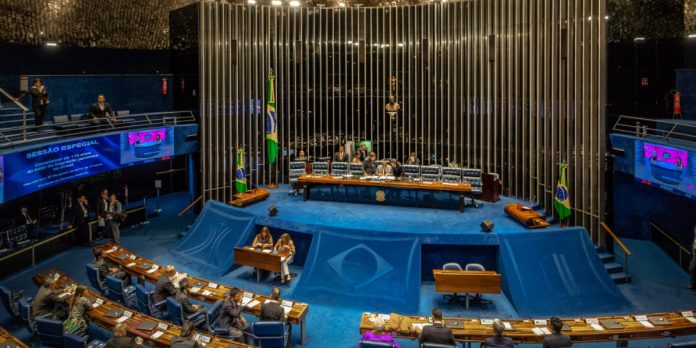The Senate of Brazil’s Economic Affairs Commission is likely to accept the federal sports betting and gaming legislation having reviewed the framework’s tax rates.
Having passed the Economic Affairs Commission, the federal bill – which has been in the works for over four years – is now one Senate vote and a Presidential signature away from becoming law.
During the examination, the CAE revised the tax framework of the sports betting market, reducing the 18% GGR tax to 12%, with the 30% winnings tax rate lowered to 15%. The changes were recommended by the Brazilian Ministry of Finance and backed up by the Commission rapporteur Angelo Coronel.
The tax rate of 12% charged on licensed operators will include the deduction of customer winnings and the taxes paid on player prizes.
However, the value of the federal grant remained at R$30 million, as proposed by the Chamber of Deputies, with a validity period of five years.
The breakdown mechanism for the distribution of collected tax revenue funds was also signed off, with 10% heading to the Ministry of Education, 14% to public security and 36% going to the Ministry of Sports which will be shared across national bodies and charities.
28% will go to the tourism sector, directed to the agencies of Embratur and the Ministry of Tourism; 1% to the Ministry of Health; 0.5% to civil society agencies of Fenapes and Fena Pestalozzi; and 0.5% to the Federal Police’s operational fund.
Meanwhile, another point of contention throughout the process has been the status of advertising and marketing. One previous amendment suggested that all advertising and sponsorships between operators and sports teams be banned, but this was met with opposition from the sports teams.
Consequently, the amendment for banning adverts and sponsorship was banned.
CAE rapporteur Angelo Coronel remarked: “We understand the concern about the excessive exposure of young people to advertising pieces in various media. However, we believe that the best path is the adequate regulation of advertising, with the sanctions provided for in the project.”
The main limitation of these deals is that advertising in sports arenas and mass media will be prohibited between the hours of 6 am and 11 pm to protect consumers.
Brazil’s Bill also considers integrity measures, requiring identity proofing procedures – which also serves the function of ensuring the 18+ age limit is enforced – and that operators and financial/payment institutions must keep records of ‘bets, prizes, withdrawals and deposits.
Now the CAE has approved the legislation, it will go back to the Chamber of Deputies to be approved before returning to the Senate for a final floor vote.
Should these votes be in favor of approving the measures, the bill will be sent to President Lula, who will have 15 days to sign or veto the bill.













